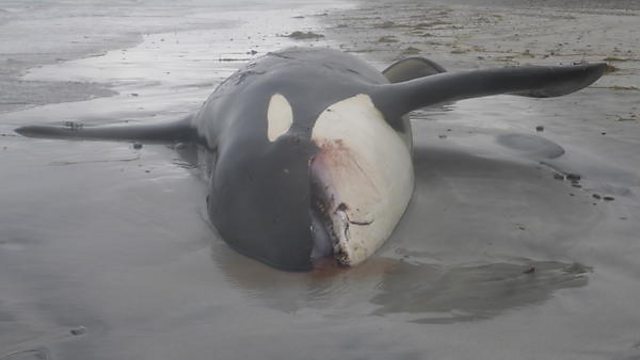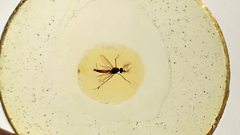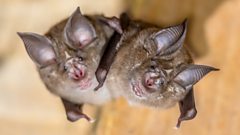Main content
Chemical threat to killer whales
New research shows Europe's largest marine predators have dangerously high levels of banned chemicals in their blubber, which impacts on breeding and the health of newborn calves.
The chemicals – called PCB’s – have stayed in the marine environment, making their way up the food chain, accumulating in the tissues of top predators like killer whales and bottlenose dolphins. Dr. Paul Jepson, from London Zoo, is one of the authors of the study.
Photo: Scottish orca stranding
Credit: ©Scottish Marine Animal Strandings Scheme
Duration:
This clip is from
More clips from Science In Action
-
![]()
How do chimps learn their skills?
Duration: 15:25
-
![]()
Pompeii: DNA reveals truths about victims' identities
Duration: 04:44
-
![]()
Libanoculex Intermedius—Can carbon capture live up to its hype?
Duration: 00:52
-
![]()
How 'viral sex' in bats can create new hybrid Sars viruses
Duration: 06:05






